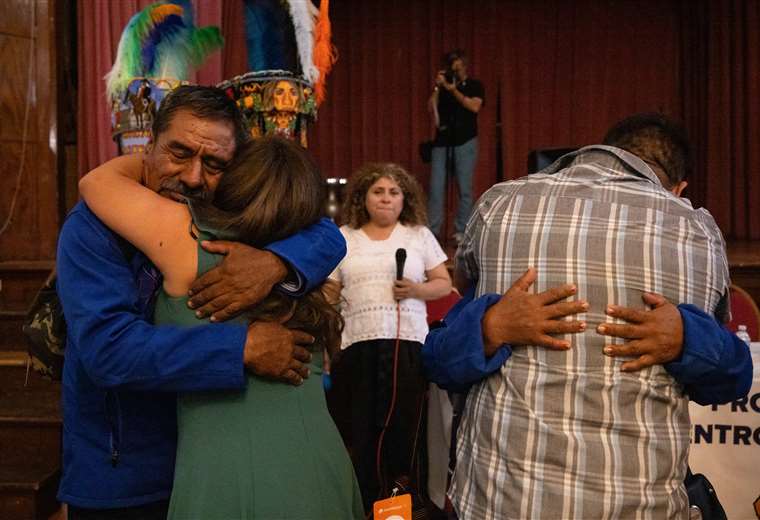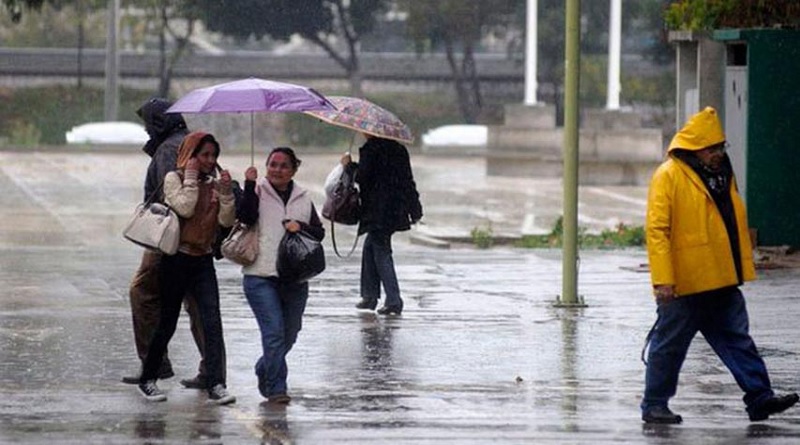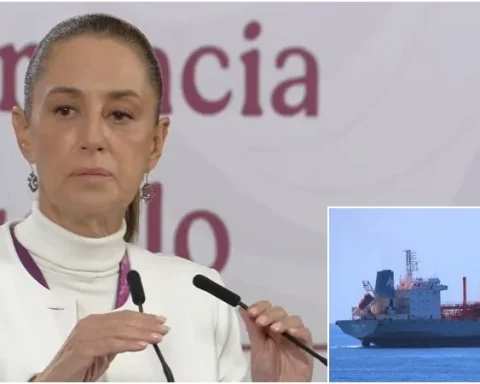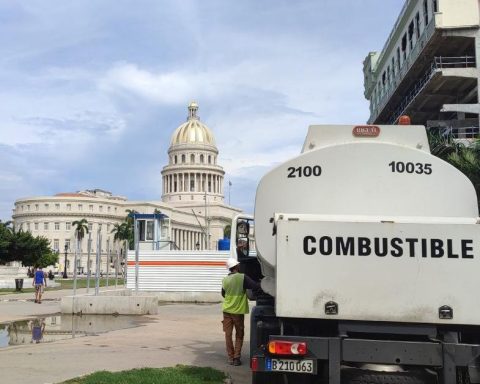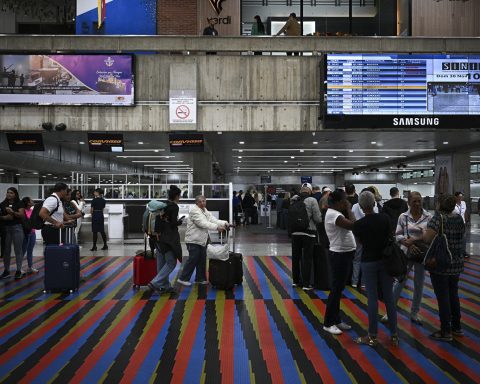June 29, 2023, 10:43 AM
June 29, 2023, 10:43 AM
“It didn’t change much,” says the Mexican Irene Galicia after melting into a hug with her son Gabriel Hernández in New York. “She thought she wasn’t going to recognize him!”, she says after 25 years without seeing him.
Doña Irene, 80, and her husband Esteban Hernández, 74, are part of about thirty families who arrived in New York on a trip organized by the Chinelos de Morelos Migrant Club, a volunteer NGO that helps people over the age of 50 to obtain a US visa to join their children, most of them undocumented immigrants, whom they haven’t seen in years.
“I can say that I am complete,” says his son Gabriel, 44, who spent most of his time in the United States. He always feared, particularly during the pandemic, that he would never see his parents again. They both contracted covid.
“It is the greatest achievement that I can live at the moment,” he confesses emotionally to AFP after the “nerves” he experienced that prevented him from “eating and sleeping” in recent days.
Gabriel, his wife and two of their four children -one of them is enlisted in the US Navy and the other stayed at home due to lack of space in the car-, like the rest of the family, met last Sunday at a center in Queens -after a long trip from various parts of Mexico- for this generous reunion in emotions, tears and hugs.
Like the Hernández Galicia, the rest of the families finally gave themselves that long-awaited embrace between the children who left Mexico in search of a better future and the parents who stayed behind receiving their help, a vital source of resources for 4.6 million Mexican households, which receive an average of $380 per month, according to data from the central bank of Mexico (Banxico).
In 2022, Mexicans from the diaspora – around 37.2 million live in the United States, including immigrants (more than 11 million) and those born in the first and second generations – sent a record 58.497 million dollars to their families, 13, 4% more than the previous year.
Risk of not being able to return
Aurora Morales, the coordinator of the NGO that has made this meeting possible, assures that the most difficult part of the process is helping these elderly people, mostly from remote rural communities, to “have a birth certificate” to obtain the Mexican passport. .
“A process that can take up to 6 months”, because sometimes, “you have to look for photos of a grave.” “The visa is easier than the passport!” He told AFP.
Since 2017 his NGO, one of those that carries out this “humanitarian program”, which is paid for by children in the United States, has managed to bring together nearly 5,000 families.
A drop in an ocean. According to the Migration Policy Institute, some 11 million undocumented immigrants live in the United States, almost half of them Mexican. Despite Democratic President Joe Biden’s electoral promise, his situation remains unregulated.
“Half of the undocumented Mexican population in the United States has been living there for more than 17 years,” Claudia Masferrer, a professor and researcher at the Colegio de México, told AFP.
Undocumented immigrants cannot return to their country of origin so as not to run the risk of not being able to return.
However, in the host country “they buy a house, have a job, pay taxes”, points out Morales, who recalls that they are an “essential” labor force in agriculture, production chains and services in the country.
Demetria García Solano, 64, part of this group of travelers, has six of her seven children, five grandchildren (whom she is going to meet), her mother and five siblings in the United States. In Mexico, she takes care of four children of one of her daughters who emigrated from her.
“I would have liked to come (before), I would have seen my children grow up” since they left Mexico as teenagers, he told AFP. “It hurts a lot,” she says with tears in her eyes. After five failed attempts to obtain a visa, he has finally been able to meet his “goal” to see them all again.
Although 7-year-old Emily at first seems more interested in the phone screen than Grandma Irene and her long white braid, little by little they break the ice and the two go hand in hand to enjoy the entire month that They will spend with the family. Better late than never.
